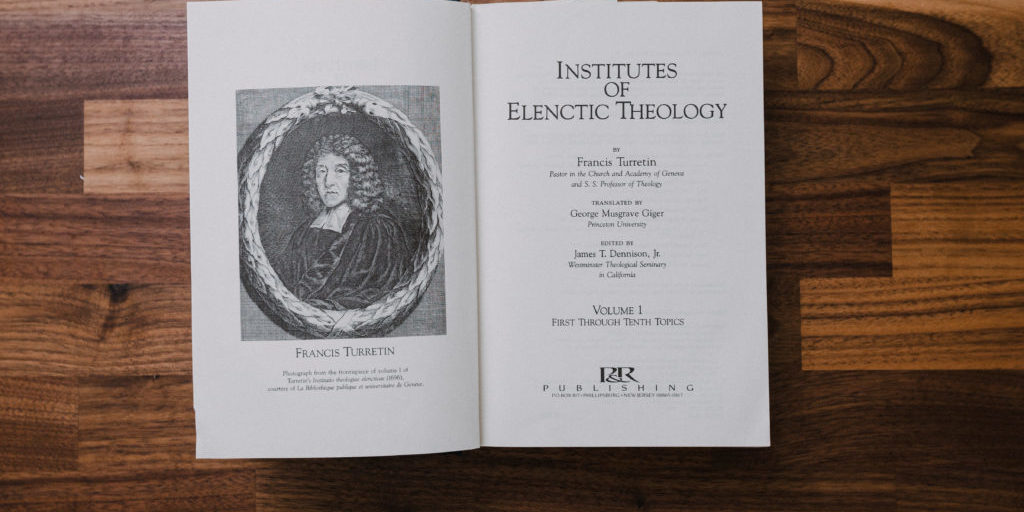
Why Pastors Should Engage Francis Turretin
R.C. Sproul once said, “If you ask me who I think were three most brilliant theologians in all of history, I would say Thomas Aquinas, Jonathan Edwards, and Francis Turretin.” About Turretin, he added, “If you want to find sound theology, here it is.”
So who is this giant from the past? Francis Turretin spanned most of the seventeenth century. Born in 1623, he came by theology as his profession honestly. His grandfather, having embraced the Reformed faith, immigrated to Geneva from Italy. Francis’s father, Benedict Turretin, was also a theologian whose career included a significant role at the Synod of Dort. Francis cut his teeth on theology in Geneva, then studied at a number of Europe’s most prestigious universities. He returned to Geneva to pastor an Italian church and serve as a professor at the Geneva Academy. The Italian church in Geneva had been established in 1542 to serve Reformation refugees. The Geneva Academy was founded in 1559 by Calvin. Turretin died in his beloved city of Geneva on September 28, 1687.
In addition to preaching and teaching, he wrote. Most notable among Turretin’s writings is his three-volume Institutes of Elenctic Theology. It was originally published in Latin as Institutio Theologiae Elencticae, published in four volumes in 1688.
It was and is immense. Covering the whole range of systematic theology, Turretin offers twenty topics. Each topic is addressed through a series of questions. The questions are answered. Objections are raised. Objections are answered. With the precision of a surgeon’s scalpel, Turretin addresses problems, works through all the angles, and brings the reader to a pinpoint resolution—aided by logic, the best of the tradition, and above all Scripture. It was this precision, that made Turretin so appealing to R.C. And it is Turrretin’s precision that makes him so necessary for pastors today.
We need to see this precision played out against three things:
- the context in which Turretin lived and wrote
- the method animating how and what Turretin wrote
- the end for which Turretin wrote
The Polemics of the Seventeenth Century: Turretin’s Context
Cool closets or controversy? B.B. Warfield once remarked that theologians and pastors might prefer comfortable environments, what Warfield called “cool closets.” The reality is that many actually find themselves in controversy, sometimes steeped in it.
When we think of the Reformers we sometimes forget that they lived far from charmed lives and existences. Luther lived most of his adult life as an outlaw with a potential death sentence over his head. Calvin suffered wave upon wave of betrayal, misunderstanding, and conflict. These were times of significant political, ecclesiastical, and theological upheaval. These times rolled into the seventeenth century. Disputes rose against what came to be called Calvinism, or the Reformed view of the doctrines of grace. They were addressed at the Synod of Dort, but the Arminian camp grew stronger as the decades wore on. The Socinian controversy raged in Turretin’s day, as it did in Calvin’s day. And the papists did not disappear when Luther swung his mallet. All of these controversies and more were part of the warp and woof of Turretin’s life. Whether he was addressing those in the pew or those who would step into the pulpit he fully embraced the challenge of defending orthodoxy and calling out heresy and error. That was called polemics, the engaging in controversy and dispute. Turretin knew that error was deadly for the church, and he stepped in.
This context of controversy means that Turretin’s academic theological work is not merely academic nor abstract. His theological writing has everything to do with church life and the Christian life. Turretin writes with an intellectual passion because what was at stake was the doctrine of God, the doctrine of Christ, and the doctrines of grace. In fact, doctrine itself was at stake. The names of the figures involved in the controversies have changed since the seventeenth century, but the issues haunt our day.
Can a well-intentioned Christian go wrong on the doctrine of God? Can they be tripped up by impassibility? What are we to make of the discussion of the eternal generation of the Son? What do we do with subtle, or not so subtle, challenges to T-U-L-I-P? Turretin can help. Not only can Turretin help with actual arguments and actual, sound instruction, he also helps by reminding pastors that they are polemicists. Click To Tweet
Not only can Turretin help with actual arguments and actual, sound instruction, he also helps by reminding pastors that they are polemicists. Proclaiming the gospel involves defending and contending for the gospel. Pastors are not called to stir up controversy or be controversialists (in the negative sense). But they are not called to duck controversy, either. Controversy actually doesn’t need to be sought out. There’s something about proclaiming the truth that brings with it the drawing of lines. Warfield knew he wouldn’t have the “cool closets” of comfort, because he cared for and proclaimed the truth. Turretin had a similar context. Engaging Turretin is fortifying for the controversy that sometimes comes.
Turretin’s context lies behind his precision. His method also relates to his precision.
Scholasticism: Turretin’s Method
One of the many things you learn from the study of history is an appreciation for irony. One of those ironies you learn is that things that appear to the most irrelevant are indeed the most relevant. This is certainly true of scholasticism. The scholastics tend to get a bad reputation. They are seen as the ones having great answers to questions that no one is asking. How many angels can sit on the head of a pin?
The scholastics did in fact like to ask questions. But they weren’t unnecessary or merely academic questions intended only to tie your brain into a knot like a pretzel.
People have questions and people need answers. Turretin provides reliable and sound answers. I recently spoke with a pastor who shared of his experience with younger church planters. These were truly zealous and sincere young men who were willing to pour themselves into the work. But they lacked any formal training in Bible and theology. They preached, but they had nothing to preach. They wanted to have a church, but they had no theology of the church, nor a theology for the church. Many of them were like meteors with brilliant and radiant starts that sadly burnt out all too quickly and had become a spent force.
People have questions, and those questions are ultimately theological. Turretin is a great encyclopedia at the pastor’s fingertips to provide sound answers backed by solid reasoning and Scripture. Turretin is like having a theology curriculum answer key always at the ready. That’s a valuable resource for any pastor.
What proves quite helpful about Turretin’s method is the order and procedure by which he tackles a problem. He starts first by framing a question. He next explains how the question arose and, in the process, helps the reader grasp what’s at stake in the question. He then answers the question with propositions logically flowing together and all generously supported by Scripture.
There is something refreshing and nourishing about watching a sharp mind at work. Our campus at Reformation Bible College is currently undertaking a massive building project. I watched the other day as the construction crew lifted the roof trusses in place and then secure them to the finished walls. The skill and the precision of the workers were admirable. We marvel at skilled workers at work. Reading Turretin is watching a master craftsman at work.
In addition to Turretin’s context and method, we also need to consider the purpose of Turretin’s writing. What was Turretin aiming at?
Worship: Turretin’s Aim
In the very first topic, simply titled “Theology,” Turretin says that the theologian who “does not carry his system into practice” is an impious theologian. For Turretin, theology is both theoretical and practical. Living is the aim of theology. But so is worship, and worship springs from love. Put simply, we study and know God so that we can love God so that we can worship God and so that we will serve God as obedient and grateful sons and daughters.
Turretin puts it this way, “There is no mystery proposed to our contemplation as an object of faith which does not excite us to the worship of God or which is not prerequisite for its proper performance.”
To know God is to love God and to worship Him aright. That is the aim of theology. Now, again, we see why precision matters. If we are talking about worshiping God, there can be no greater call than the call for precision, for utmost care and diligence. The subject of God is the most important subject we will ever apply ourselves to.
Why should every pastor engage Turretin? Because theology demands precision. And precious few rival Francis Turretin and his Institutes of Elenctic Theology.

